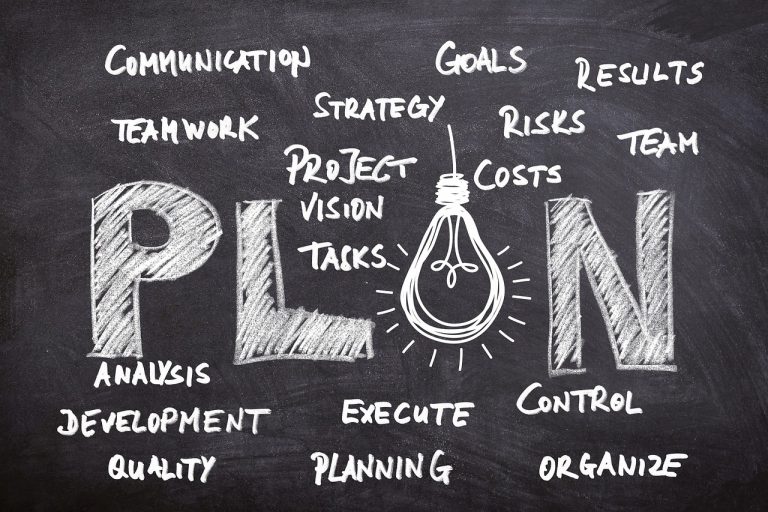Embracing the Future: How Artificial Intelligence is Transforming Project Management
The integration of Artificial Intelligence (AI) into project management is reshaping how projects are planned, executed, and delivered. As AI technology advances, its applications in project management are becoming increasingly sophisticated, offering unprecedented opportunities for efficiency, accuracy, and innovation. This article explores how AI is being utilized in project management and the transformative effects it is having on the field.
Understanding the Role of AI in Project Management
AI’s integration into project management is a game-changer, enhancing traditional practices with advanced capabilities. Here’s how AI is making an impact:
- Enhanced Data Analytics and Predictive Insights:
- Predictive Analytics: AI algorithms analyze historical data and project metrics to predict future outcomes, identify potential risks, and forecast project timelines. This predictive capability helps project managers make informed decisions and anticipate challenges before they arise.
- Trend Analysis: AI tools can identify patterns and trends in project data, providing insights into performance and potential areas for improvement. This enables more strategic planning and proactive management.
- Automation of Routine Tasks:
- Task Automation: AI-driven automation streamlines routine tasks such as scheduling, resource allocation, and status updates. By automating repetitive processes, project managers can focus on higher-value activities and strategic decision-making.
- Document Management: AI tools assist in organizing, categorizing, and retrieving project documents. Natural Language Processing (NLP) allows AI to understand and process text, making document management more efficient.
- Improved Risk Management:
- Risk Detection: AI systems can analyze vast amounts of data to identify potential risks and vulnerabilities in projects. Machine learning models continuously learn from past projects to enhance risk prediction accuracy.
- Risk Mitigation: AI provides recommendations for risk mitigation strategies based on historical data and predictive models. This helps project managers implement effective risk management plans.
- Optimized Resource Allocation:
- Resource Forecasting: AI tools analyze project requirements and resource availability to optimize allocation. This ensures that resources are assigned where they are needed most, minimizing waste and improving efficiency.
- Workload Balancing: AI helps balance workloads among team members by analyzing performance data and predicting capacity needs, ensuring that no individual or team is overburdened.
- Enhanced Collaboration and Communication:
- Virtual Assistants: AI-powered virtual assistants support project teams by managing schedules, setting reminders, and answering queries. These assistants enhance communication and keep projects on track.
- Chatbots: AI chatbots facilitate real-time communication and provide instant support for team members, addressing common queries and issues quickly.
- Advanced Decision Support:
- Scenario Analysis: AI enables scenario analysis by simulating various project scenarios and outcomes. This allows project managers to evaluate different strategies and choose the most effective approach.
- Decision Optimization: AI tools use algorithms to analyze complex decision-making factors and recommend optimal solutions, improving overall project decision-making.
- Enhanced Monitoring and Reporting:
- Real-time Monitoring: AI provides real-time monitoring of project progress, tracking key performance indicators (KPIs) and identifying deviations from the plan. This allows for timely interventions and course corrections.
- Automated Reporting: AI automates the generation of project reports, analyzing data and producing comprehensive reports with minimal manual input. This improves accuracy and reduces reporting time.
Tips for Integrating AI into Project Management
- Start Small and Scale Gradually:
- Tip: Begin by implementing AI tools for specific tasks or functions, such as scheduling or risk management. Gradually scale up as you become more comfortable with the technology and its benefits.
- Choose the Right AI Tools:
- Tip: Select AI tools that align with your project management needs and goals. Evaluate options based on features, ease of integration, and user feedback to ensure they meet your requirements.
- Train Your Team:
- Tip: Provide training for team members on how to use AI tools effectively. Ensure they understand the benefits and capabilities of AI to maximize its potential and integrate it smoothly into workflows.
- Monitor Performance and Adapt:
- Tip: Continuously monitor the performance of AI tools and their impact on project outcomes. Be prepared to adapt and refine your AI strategy based on feedback and results.
- Maintain a Human Touch:
- Tip: While AI enhances efficiency, it is crucial to maintain human oversight and judgment. Use AI as a support tool rather than a replacement for human decision-making and leadership.
Conclusion
Artificial Intelligence is revolutionizing project management by providing advanced capabilities for data analysis, automation, risk management, and decision-making. By embracing AI, project managers can enhance efficiency, accuracy, and collaboration, leading to more successful project outcomes. As AI technology continues to evolve, its role in project management will likely expand, offering even more opportunities for innovation and improvement. Integrate AI thoughtfully and strategically to harness its benefits and stay ahead in the dynamic field of project management.







